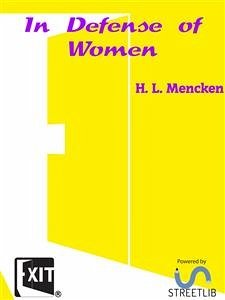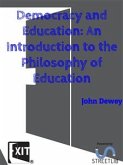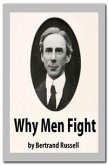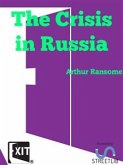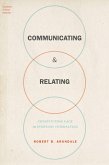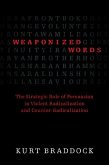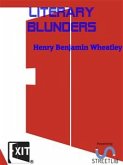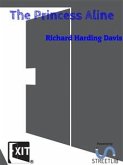Introduction
As a professional critic of life and letters, my principal business in the world is that of manufacturing platitudes for tomorrow, which is to say, ideas so novel that they will be instantly rejected as insane and outrageous by all right thinking men, and so apposite and sound that they will eventually conquer that instinctive opposition, and force themselves into the traditional wisdom of the race. I hope I need not confess that a large part of my stock in trade consists of platitudes rescued from the cobwebbed shelves of yesterday, with new labels stuck rakishly upon them. This borrowing and refurbishing of shop-worn goods, as a matter of fact, is the invariable habit of traders in ideas, at all times and everywhere. It is not, however, that all the conceivable human notions have been thought out; it is simply, to be quite honest, that the sort of men who volunteer to think out new ones seldom, if ever, have wind enough for a full day's work. The most they can ever accomplish in the way of genuine originality is an occasional brilliant spurt, and half a dozen such spurts, particularly if they come close together and show a certain co-ordination, are enough to make a practitioner celebrated, and even immortal. Nature, indeed, conspires against all such genuine originality, and I have no doubt that God is against it on His heavenly throne, as His vicars and partisans unquestionably are on this earth. The dead hand pushes all of us into intellectual cages; there is in all of us a strange tendency to yield and have done. Thus the impertinent colleague of Aristotle is doubly beset, first by a public opinion that regards his enterprise as subversive and in bad taste, and secondly by an inner weakness that limits his capacity for it, and especially his capacity to throw off the prejudices and superstitions of his race, culture anytime. The cell, said Haeckel, does not act, it reacts—and what is the instrument of reflection and speculation save a congeries of cells? At the moment of the contemporary metaphysician's loftiest flight, when he is most gratefully warmed by the feeling that he is far above all the ordinary airlanes and has absolutely novel concept by the tail, he is suddenly pulled up by the discovery that what is entertaining him is simply the ghost of some ancient idea that his school-master forced into him in 1887, or the mouldering corpse of a doctrine that was made official in his country during the late war, or a sort of fermentation-product, to mix the figure, of a banal heresy launched upon him recently by his wife. This is the penalty that the man of intellectual curiosity and vanity pays for his violation of the divine edict that what has been revealed from Sinai shall suffice for him, and for his resistance to the natural process which seeks to reduce him to the respectable level of a patriot and taxpayer.
As a professional critic of life and letters, my principal business in the world is that of manufacturing platitudes for tomorrow, which is to say, ideas so novel that they will be instantly rejected as insane and outrageous by all right thinking men, and so apposite and sound that they will eventually conquer that instinctive opposition, and force themselves into the traditional wisdom of the race. I hope I need not confess that a large part of my stock in trade consists of platitudes rescued from the cobwebbed shelves of yesterday, with new labels stuck rakishly upon them. This borrowing and refurbishing of shop-worn goods, as a matter of fact, is the invariable habit of traders in ideas, at all times and everywhere. It is not, however, that all the conceivable human notions have been thought out; it is simply, to be quite honest, that the sort of men who volunteer to think out new ones seldom, if ever, have wind enough for a full day's work. The most they can ever accomplish in the way of genuine originality is an occasional brilliant spurt, and half a dozen such spurts, particularly if they come close together and show a certain co-ordination, are enough to make a practitioner celebrated, and even immortal. Nature, indeed, conspires against all such genuine originality, and I have no doubt that God is against it on His heavenly throne, as His vicars and partisans unquestionably are on this earth. The dead hand pushes all of us into intellectual cages; there is in all of us a strange tendency to yield and have done. Thus the impertinent colleague of Aristotle is doubly beset, first by a public opinion that regards his enterprise as subversive and in bad taste, and secondly by an inner weakness that limits his capacity for it, and especially his capacity to throw off the prejudices and superstitions of his race, culture anytime. The cell, said Haeckel, does not act, it reacts—and what is the instrument of reflection and speculation save a congeries of cells? At the moment of the contemporary metaphysician's loftiest flight, when he is most gratefully warmed by the feeling that he is far above all the ordinary airlanes and has absolutely novel concept by the tail, he is suddenly pulled up by the discovery that what is entertaining him is simply the ghost of some ancient idea that his school-master forced into him in 1887, or the mouldering corpse of a doctrine that was made official in his country during the late war, or a sort of fermentation-product, to mix the figure, of a banal heresy launched upon him recently by his wife. This is the penalty that the man of intellectual curiosity and vanity pays for his violation of the divine edict that what has been revealed from Sinai shall suffice for him, and for his resistance to the natural process which seeks to reduce him to the respectable level of a patriot and taxpayer.

